
The Historic Charm of Goha Tsion in Gondar
Goha Tsion in Gondar, Ethiopia, is a gem that perfectly blends history, culture, and scenic beauty. Nestled in the highlands, this neighborhood offers a unique glimpse into Ethiopia's rich past and vibrant present. As you stroll through the cobblestone streets, you'll find yourself surrounded by centuries-old architecture, bustling markets, and friendly locals eager to share their stories. The heart of Goha Tsion is its historical significance. Known as the 'Camelot of Africa', Gondar boasts a series of royal castles, churches, and relics from the 17th century. The Fasil Ghebbi, a UNESCO World Heritage Site, is a must-visit. This royal enclosure is home to several palaces, churches, and other historical buildings, showcasing a mix of Ethiopian, Indian, and Baroque architectural styles. Apart from its historical allure, Goha Tsion is also a gateway to nature. The nearby Simien Mountains National Park offers breathtaking landscapes and a chance to see unique wildlife such as the Gelada baboons. Whether you're a history buff, a nature lover, or someone who enjoys immersing in new cultures, Goha Tsion has something to offer for everyone.
Local tips in Goha Tsion
- Wear comfortable walking shoes as the terrain can be uneven with cobblestone streets.
- Visit early in the morning to avoid the crowds at popular sites like Fasil Ghebbi.
- Hire a local guide to gain deeper insights into the history and culture of the area.
- Carry a water bottle and stay hydrated, especially if you're planning to hike in the Simien Mountains.
- Respect local customs and dress modestly when visiting religious sites.
The Historic Charm of Goha Tsion in Gondar
Goha Tsion in Gondar, Ethiopia, is a gem that perfectly blends history, culture, and scenic beauty. Nestled in the highlands, this neighborhood offers a unique glimpse into Ethiopia's rich past and vibrant present. As you stroll through the cobblestone streets, you'll find yourself surrounded by centuries-old architecture, bustling markets, and friendly locals eager to share their stories. The heart of Goha Tsion is its historical significance. Known as the 'Camelot of Africa', Gondar boasts a series of royal castles, churches, and relics from the 17th century. The Fasil Ghebbi, a UNESCO World Heritage Site, is a must-visit. This royal enclosure is home to several palaces, churches, and other historical buildings, showcasing a mix of Ethiopian, Indian, and Baroque architectural styles. Apart from its historical allure, Goha Tsion is also a gateway to nature. The nearby Simien Mountains National Park offers breathtaking landscapes and a chance to see unique wildlife such as the Gelada baboons. Whether you're a history buff, a nature lover, or someone who enjoys immersing in new cultures, Goha Tsion has something to offer for everyone.
Iconic landmarks you can’t miss
Fasil Ghebbi
Experience the enchanting Fasil Ghebbi, a historical landmark in Gondar, Ethiopia, where royal heritage and stunning architecture come together.
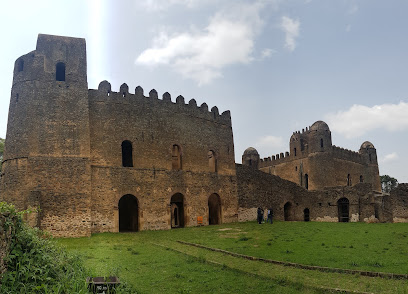
Simien Mountains National Park
Explore the breathtaking landscapes and rich biodiversity of Simien Mountains National Park, a true natural wonder in Ethiopia's highlands.
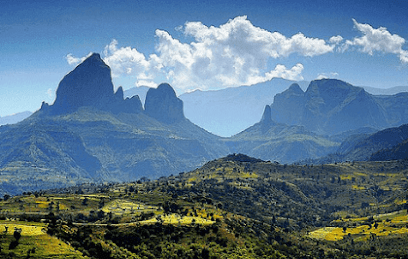
Goha Hotel
Experience breathtaking views and warm hospitality at Goha Hotel, your ideal base for exploring the historic treasures of Gondar, Ethiopia.
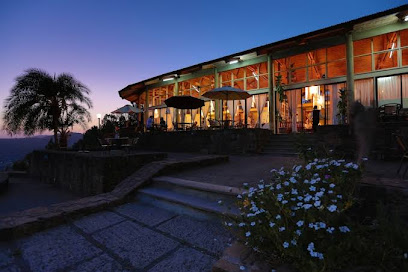
Bale Mountains National Park
Explore the breathtaking landscapes and rich biodiversity of Bale Mountains National Park in Ethiopia, a haven for adventure seekers and nature lovers.
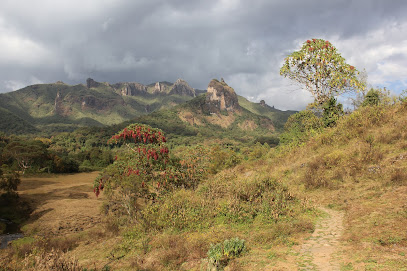
Emperor Fasil’s Palace
Discover the architectural splendor of Emperor Fasil’s Palace, a UNESCO World Heritage Site in Gondar, showcasing Ethiopia's rich history and culture.
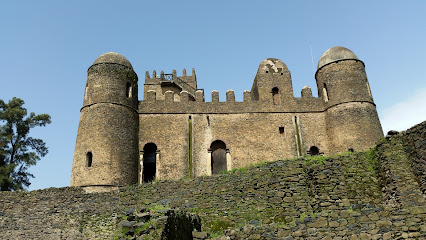
Debre Birhan Selassie Church
Discover the stunning Debre Birhan Selassie Church, a masterpiece of Ethiopian Orthodox architecture and a beacon of Gondar's rich cultural heritage.
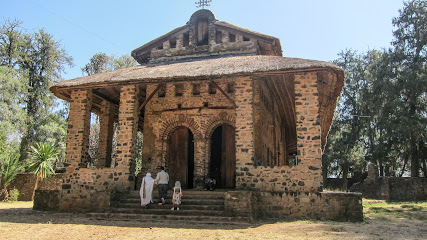
Gondar Hills Resort
Discover luxury and breathtaking views at Gondar Hills Resort, a premier hotel in the heart of Ethiopia's scenic landscape.

AG Hotel
AG Hotel in Gondar: Your gateway to exploring Ethiopia's rich history and stunning landscapes, offering cozy accommodations and local charm.

Holqa Soof Umar(Sof Omar Cave)
Explore the mesmerizing Sof Omar Cave in Ethiopia, a stunning natural wonder rich in geological formations and cultural significance.
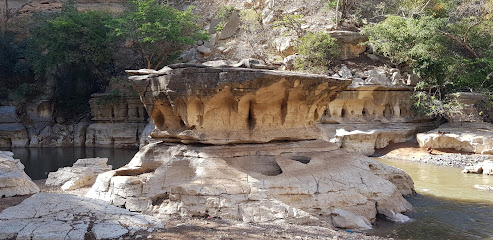
Lodge Du Chateau - Gonder - Ethiopia
Discover the charm of Gondar at Lodge Du Chateau, where traditional hospitality meets modern comfort in a historic setting.
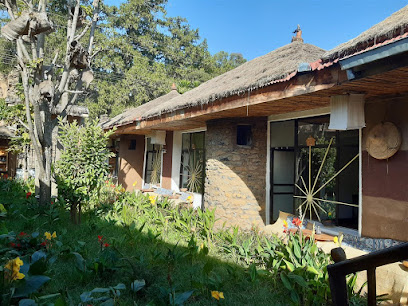
Haz Hotel
Stay at Haz Hotel for a blend of comfort, culture, and convenience in historic Gondar, Ethiopia, close to iconic attractions.
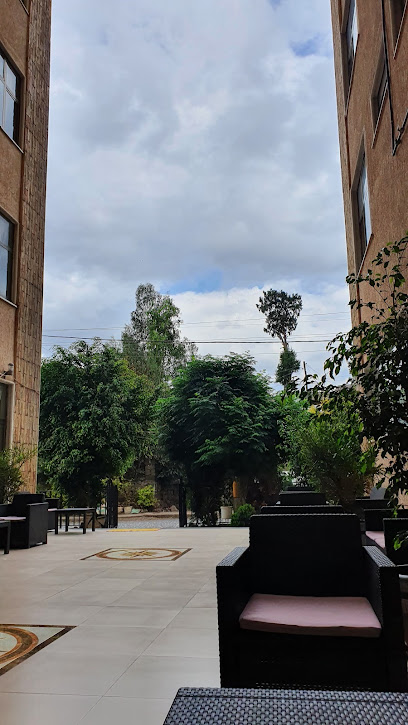
Kusquam Church
Discover the rich history and artistic beauty of Kusquam Church, a key landmark in Gondar's Orthodox Christian community.
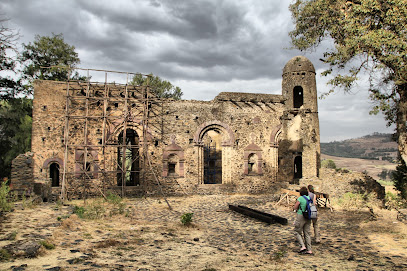
Awash park
Discover the breathtaking beauty and rich wildlife of Awash Park, Ethiopia's serene oasis for nature lovers and adventure seekers.
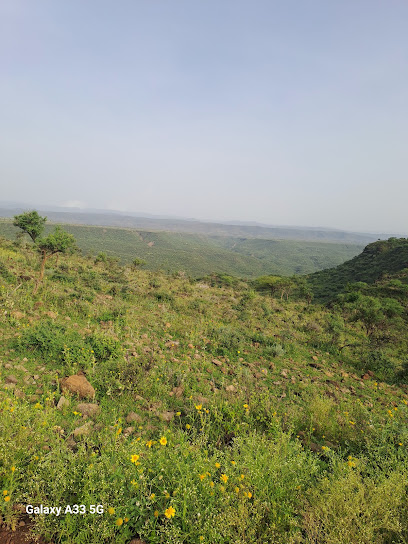
Royal enclosure- Main Entrance
Explore the Royal Enclosure in Gondar, a UNESCO World Heritage site, and immerse yourself in the grandeur of Ethiopia's imperial history.
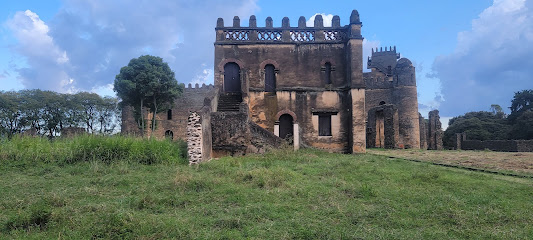
Unmissable attractions to see
Emperor Fasil’s Palace
Discover the breathtaking Emperor Fasil's Palace in Gondar, a UNESCO World Heritage Site showcasing Ethiopia's rich royal history and stunning architecture.
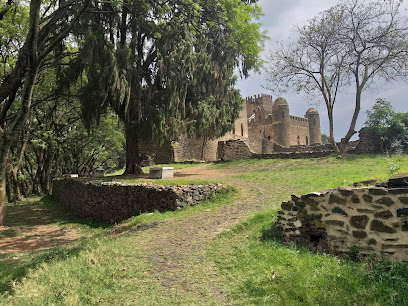
Kusquam Church
Explore the rich history and stunning architecture of Kusquam Church, a remarkable symbol of Ethiopian Orthodox faith in Gondar.
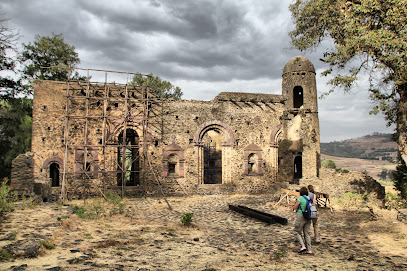
Awash park
Discover the enchanting beauty of Awash Park, an Ethiopian gem filled with diverse wildlife, stunning landscapes, and rich cultural experiences.
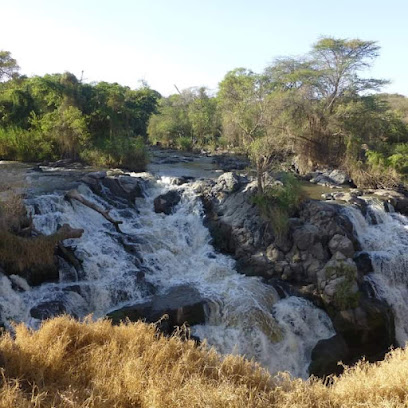
Royal enclosure- Main Entrance
Discover the majestic Royal Enclosure in Gondar, a historical landmark that reveals the grandeur of Ethiopia's imperial past and architectural treasures.
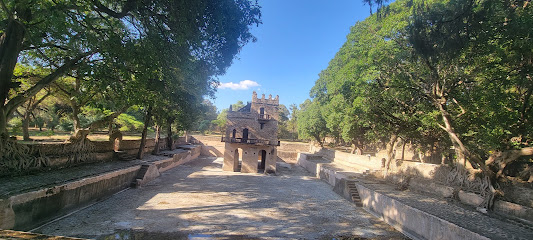
Essential places to dine
The Four Sisters Restaurant
Experience authentic Ethiopian cuisine at The Four Sisters Restaurant in Gondar - where tradition meets flavor.
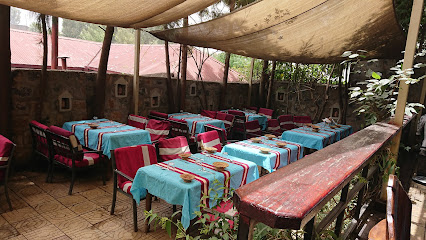
Rain Restaurant
Savor authentic Ethiopian cuisine at Rain Restaurant in Gondar - where tradition meets flavor.
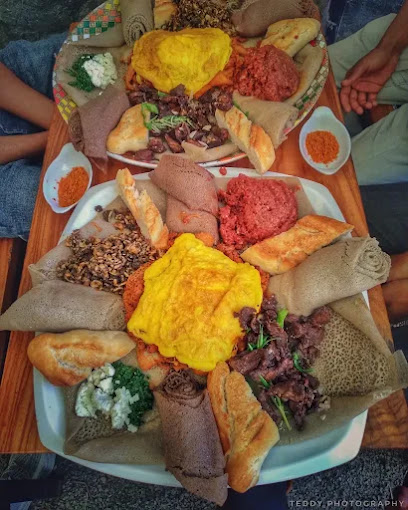
مطعم للمسلمين اكل اثيوبي
Experience authentic Ethiopian cuisine in Gondar with Muslim-friendly dining options that celebrate local flavors and traditions.
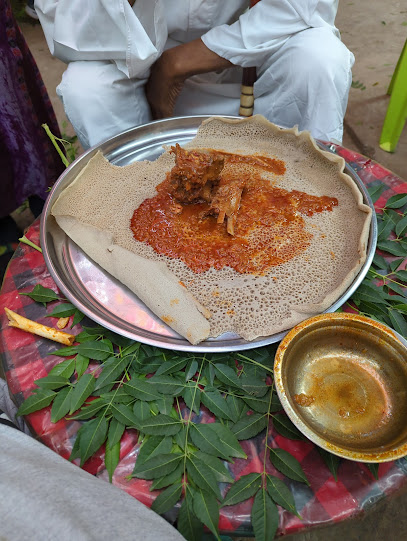
Gobgnew
Experience authentic Surinamese cuisine at Gobgnew in Tseda – a culinary journey filled with rich flavors and warm hospitality.

Mintiwab Gondar Traditional House
Discover authentic Ethiopian flavors at Mintiwab Gondar Traditional House, where tradition meets taste in every bite.

Mintiwab Gondar Cultural Elfign
Experience authentic Ethiopian cuisine at Mintiwab Gondar Cultural Elfign - a culinary gem that captures the essence of Gondar's rich culture.

Markets, malls and hidden boutiques
Debre Birhan Selassie Church
Explore the rich history and breathtaking artistry of Debre Birhan Selassie Church, a stunning landmark of Ethiopian Orthodox Christianity in Gondar.
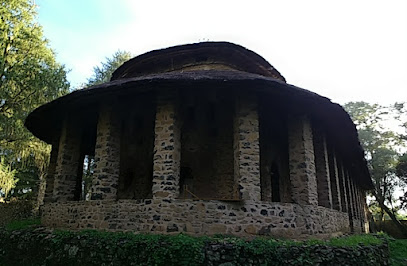
Kusquam Church
Discover the breathtaking beauty and spiritual significance of Kusquam Church, a must-visit in Gondar, Ethiopia, showcasing rich Orthodox traditions.
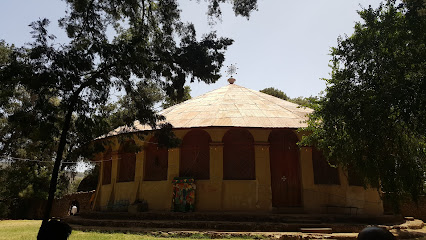
Gondar Backpackers
Discover the spirit of Ethiopia at Gondar Backpackers, the perfect youth hostel for travelers seeking adventure and camaraderie.

Goha Pharmacy
Experience the convenience of Goha Pharmacy in Gondar, where health meets hospitality for every traveler.
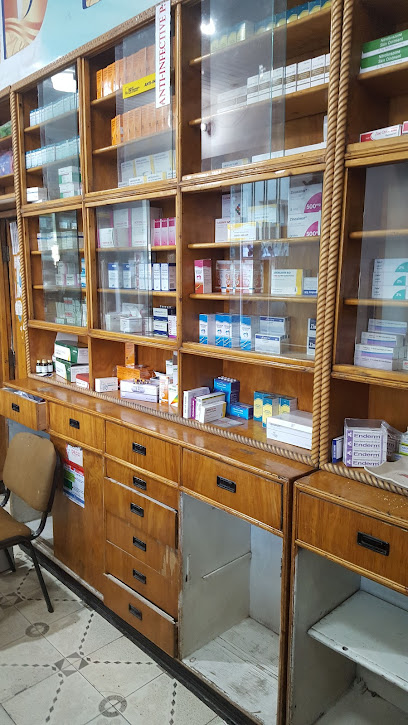
ጎንድር
Explore Gondar, Ethiopia's historical treasure, known for its majestic castles, vibrant culture, and stunning landscapes that captivate every traveler.
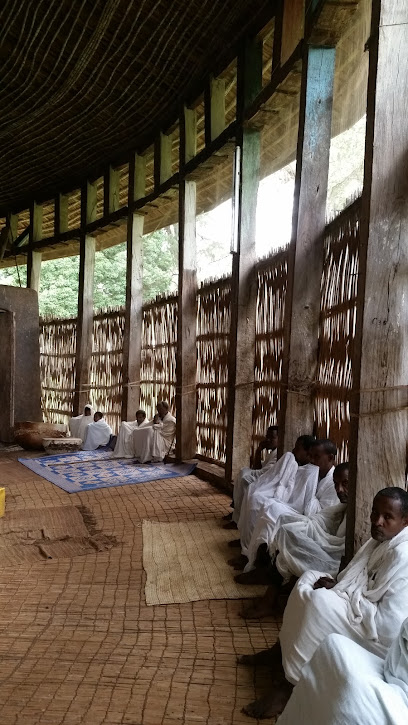
Essential bars & hidden hideouts
The Four Sisters Restaurant
Discover authentic Ethiopian flavors at The Four Sisters Restaurant in Gondar, where tradition meets taste in a warm and inviting atmosphere.
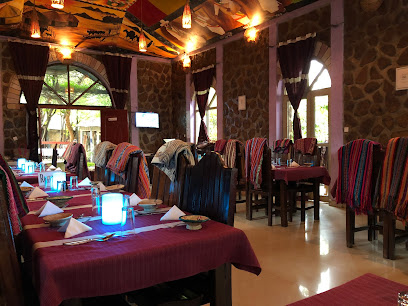
Goha Hotel
Discover comfort and breathtaking views at Goha Hotel, your perfect retreat in the historic city of Gondar, Ethiopia.

Debre Birhan Selassie Church
Discover the breathtaking Debre Birhan Selassie Church in Gondar, a masterpiece of Ethiopian Orthodox architecture and art.
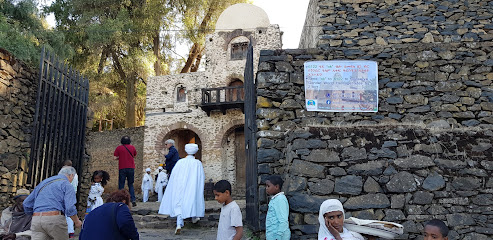
Taye Belay Gondar Hotel
Discover the charm of Gondar while enjoying modern comforts at Taye Belay Gondar Hotel, your gateway to Ethiopia's rich history.

Lodge Fasil
Discover the charm of Gondar at Lodge Fasil, where comfort meets rich Ethiopian culture and easy access to historic attractions.

INFINITY BAR & LOUNGE
Discover the vibrant nightlife of Gondar at Infinity Bar & Lounge, where great drinks and lively music come together for an unforgettable experience.
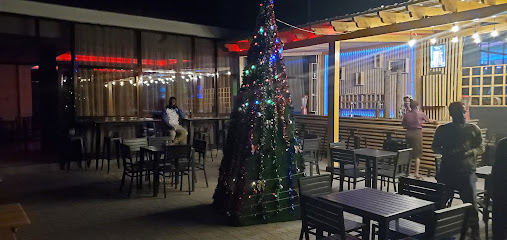
Goha Pharmacy
Experience the essence of Gondar at Goha Pharmacy, where health meets hospitality in the heart of Ethiopia's historical treasures.
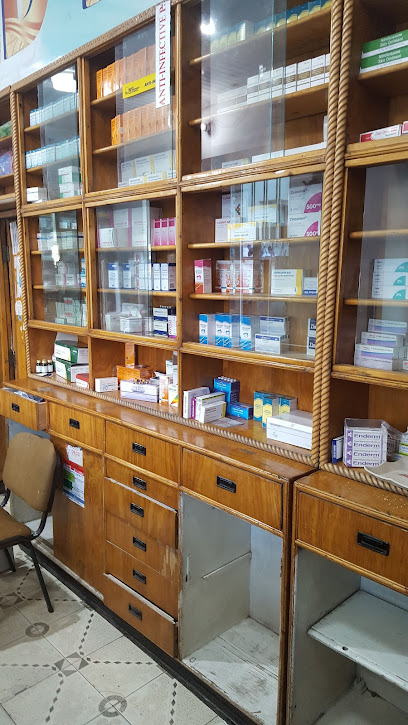
Gojo bar & restorant
Discover the vibrant Gojo Bar & Restaurant in Gondar, a perfect blend of local culture, delicious drinks, and a welcoming atmosphere for tourists.
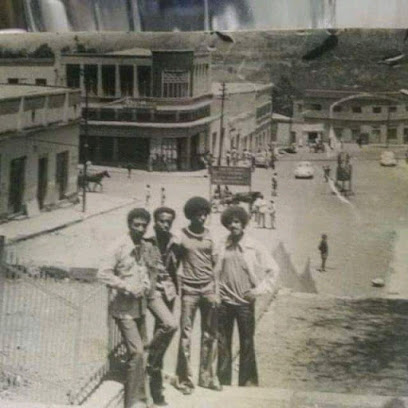
Choma Yirga Degineh
Discover the vibrant ambiance and authentic flavors of Ethiopian cuisine at Choma Yirga Degineh, a must-visit lounge in Gondar.
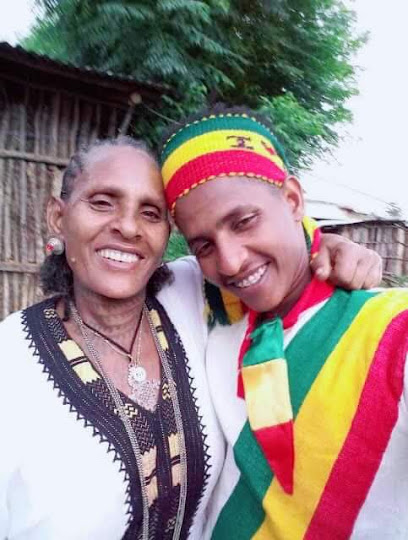
Tsion restaurant
Discover the essence of Ethiopian culture at Tsion Restaurant in Bahir Dar, where traditional flavors meet a vibrant bar atmosphere.

Local Phrases
-
- Helloሰላም
[selam] - Goodbyeደስታ
[desta] - Yesአዎ
[awo] - Noአይ
[ay] - Please/You're welcomeእባክዎ
[ebakwo] - Thank youአመሰግናለሁ
[amesegnalehu] - Excuse me/Sorryስለስል
[selsel] - How are you?እንዴት ነህ?
[endet neh?] - Fine. And you?ጤና ነኝ። እሱም?
[tena nega. esum?] - Do you speak English?እንዴት እነሱ እንግሊዝኛ አይደል?
[endet enesu engligna aydel?] - I don't understandአይችም።
[aychim]
- Helloሰላም
-
- I'd like to see the menu, pleaseምን እንደሚያስገብር ነው።
[min endimyasergebir new] - I don't eat meatአልምን።
[almen] - Cheers!ሰማይ!
[semay] - I would like to pay, pleaseእኔ ፈንታውን እንደምናለኝ።
[ene fantawen endemanaleng]
- I'd like to see the menu, pleaseምን እንደሚያስገብር ነው።
-
- Help!እርድ!
[erd] - Go away!በጣም አትሉ!
[betam atlu] - Call the Police!ፖሊስን ጥላ!
[polisn tila] - Call a doctor!ሰላም ጠይቁ!
[selam tayeku] - I'm lostተራክከኝ።
[terakeng] - I'm illእኔ ህመም ነኝ።
[ene hemem nega]
- Help!እርድ!
-
- I'd like to buy...በመጠን እንደሚያዝናቸው።
[bemeten endimyaznachew] - I'm just lookingእኔ በትክክለኛ ነኝ።
[ene betekukelagna nega] - How much is it?መቼ ነው?
[meche new?] - That's too expensiveእውነት ትምህር ነው።
[ewnet timher new] - Can you lower the price?መነሻ በማንኛውን ነው።
[menasha bemanegnaw new]
- I'd like to buy...በመጠን እንደሚያዝናቸው።
-
- What time is it?ነቅር ጊዜ ነው?
[nekre gize new?] - It's one o'clockአንድ ሰዓት ነው።
[and se'at new] - Half past (10)አምፃሪ (10)
[amsari (10)] - Morningጥንቄ
[tinke] - Afternoonከፍተኛ
[keftenya] - Eveningማታ
[mata] - Yesterdayትናንስ
[tanas] - Todayዛሬ
[zare] - Tomorrowነገር
[neger] - 1አንድ
[and] - 2ሁለት
[hulet] - 3ሶስት
[sost] - 4አራት
[arat] - 5አምስት
[amsost] - 6ስድስት
[sedost] - 7ሰባት
[sebat] - 8ስምንት
[sement] - 9ዘጠኝ
[zetegn] - 10አስራ
[asra]
- What time is it?ነቅር ጊዜ ነው?
-
- Where's a/the...?በራሱ ማንኛውን ነው?
[besiru manegnaw new?] - What's the address?አይስማም ነው?
[ayesamam new?] - Can you show me (on the map)?መነሻ እንደሚነሳው ነው።
[menasha endimenasaw new] - When's the next (bus)?ቀጣይ ቦት እንዴት ነው?
[ketye bot endet new?] - A ticket (to ....)ትኬት (እስራት ...)
[ticket (esrat ...)]
- Where's a/the...?በራሱ ማንኛውን ነው?
History of Goha Tsion
-
Goha Tsion is integral to the history of Gondar, which was founded in the 17th century by Emperor Fasilides. Gondar emerged as the royal capital of Ethiopia, with its impressive castles and churches symbolizing the power and artistry of the time. Goha Tsion, located strategically near the royal enclosure, played a significant role in the socio-political life of the city.
-
During the Gondarine period (16th to 18th centuries), Goha Tsion became a cultural hub, reflecting the architectural and artistic achievements of the time. The neighbourhood is known for its vibrant community life and the blending of Ethiopian Orthodox Christian practices with local customs, creating a unique cultural identity that continues to thrive today.
-
The Italian occupation of Ethiopia from 1936 to 1941 had a profound impact on Goha Tsion and Gondar as a whole. Italian forces utilized the area for military purposes, which led to changes in the urban landscape. This period saw the introduction of new architectural styles and infrastructure, as well as a mix of cultural influences that shaped the modern identity of the neighbourhood.
-
After the fall of the Imperial regime in the 1970s, Goha Tsion experienced social and economic changes that affected its community structure. The Derg regime implemented policies that altered the local economy and governance, leading to shifts in population and urban development. Despite these challenges, the neighbourhood has maintained its cultural significance within Gondar.
-
In recent years, Goha Tsion has seen efforts aimed at revitalizing its cultural heritage. Initiatives promoting tourism and local crafts have emerged, drawing attention to the rich history and traditions of the area. Events celebrating Ethiopian culture, music, and dance are hosted here, fostering a sense of community and pride among residents while attracting visitors to experience the vibrant atmosphere.
Goha Tsion Essentials
-
Goha Tsion is located in the city of Gondar, which is well-connected through various means of transport. From the Gondar Airport, you can take a taxi or arrange for a hotel pickup, which is the most convenient option. Within Gondar, Goha Tsion is accessible via local taxis, bajajs (auto-rickshaws), or on foot, depending on your starting point. If you're coming from other neighborhoods, simply ask for a taxi to Goha Tsion, as most drivers are familiar with the area.
-
Goha Tsion is a relatively compact neighborhood, making it ideal for walking. There are also local taxis and bajajs available for longer distances or if you prefer not to walk. Public transportation options like minibuses are less common in this area, but you can find them in nearby neighborhoods. Bicycles can be rented in Gondar for those who want a more active way to explore the surroundings.
-
Goha Tsion is generally a safe area for tourists, but like any destination, it is important to remain cautious. Avoid walking alone at night, especially in poorly lit areas. Petty crimes, such as pickpocketing, can occur in crowded places. While there are no specific high-crime areas known for targeting tourists, be vigilant in markets and busy streets.
-
In case of emergencies, dial 911 for police assistance or 944 for medical emergencies. The local hospital is located nearby, and it is advisable to have travel insurance that covers health emergencies. For minor health issues, local pharmacies are available for purchasing over-the-counter medications.
-
Fashion: Do dress modestly, particularly when visiting religious sites. Avoid shorts and sleeveless tops. Religion: Do respect local customs; always cover your head when entering churches. Public Transport: Do be courteous and offer your seat to the elderly. Don't consume food or drinks on public transport. Greetings: Do greet locals with a handshake, and a slight bow is appreciated. Eating & Drinking: Do try local dishes and accept food offerings, but don't refuse hospitality as it may be seen as impolite.
-
To experience Goha Tsion like a local, visit the nearby markets to enjoy fresh produce and traditional foods. Engage in conversations with locals who are often welcoming and eager to share their culture. Don't miss the chance to participate in local festivals or events if your visit coincides with them, as they provide a deep insight into the local way of life.
Trending Landmarks in Goha Tsion
Nearby Cities to Goha Tsion
-
Things To Do in Addis Ababa
-
Things To Do in Bahir Dar
-
Things To Do in Lalibela
-
Things To Do in Gondar
-
Things To Do in Awasa
-
Things To Do in Dire Dawa
-
Things To Do in Mekele
-
Things To Do in Harar
-
Things To Do in Arba Minch
-
Things To Do in Axum
-
Things To Do in Dikhil
-
Things To Do in Ali Sabieh
-
Things To Do in Jinka
-
Things To Do in Adi Quala
-
Things To Do in Arta








